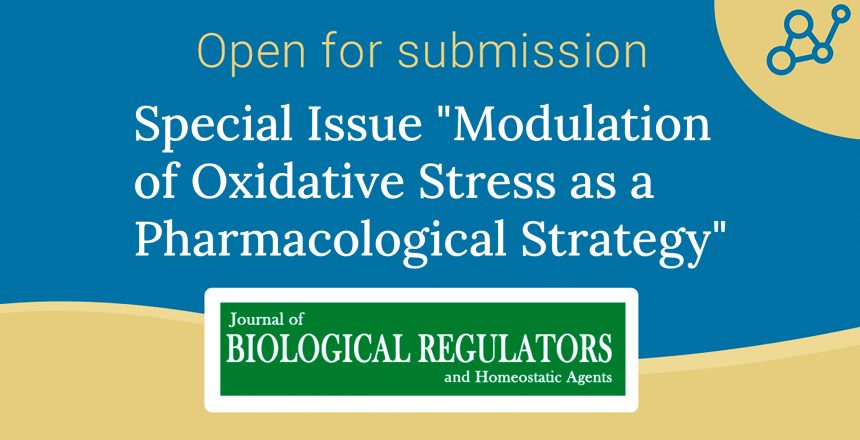Modulation of Oxidative Stress as aPharmacological Strategy
A special issue of Journal of Biological Regulators and Homeostatic Agents.
Deadline for manuscript submissions: 30 November 2023 (Status: Open)
Special Issue Editors
Prof. Luciano Saso Email | Website
Department of Physiology and Pharmacology “Vittorio Erspamer”, Sapienza University, Rome, Italy
Interests: modulation of oxidative stress; NRF2; antioxidants; pro-oxidants; pharmacology
Dr. Brigitta Buttari Email | Website
Department of Cardiovascular and Endocrine-metabolic Diseases, and Aging, Istituto Superiore di Sanità, Rome, Italy
Interests: modulation of oxidative stress; NRF2; antioxidants; immunology
Prof. Marzia Arese Email | Website
Department of Biochemical Science “A. Rossi Fanelli”, Sapienza University, Rome, Italy
Interests: Nitric oxide signaling; mitochondrial pathophysiology; oxidative stress responses
Special Issue Information
Dear Colleagues,
Oxidative stress (OS) is considered a key element driving pathophysiological processes that play a role in the onset and progression of various non-communicable diseases. According to its widely endorsed definition, OS arise from an imbalance between oxidants and antioxidants in favor of the oxidants, associated with the disruption of the physiological redox signaling pathways and leading to molecular/macromolecular damage.
Through protein modifications, DNA lesions and lipid peroxidation, OS may alter multiple biological processes, such as the induction of inflammation, apoptosis and endoplasmic reticulum stress, as well as the deregulation of autophagy, impairment of mitochondrial function/metabolism, promoting dysfunctional immune responses, and accelerating all mechanisms involved in the pathological progression and exacerbation of symptoms. However, recent research has shown that OS byproducts, such as hydrogen peroxide, hydrogen sulfide and nitric oxide, are crucial effectors of the redox signal. The Nuclear factor erythroid-2-Related Factor 2 (NRF2) is a transcription factor activated in response to oxidative stress to control fundamental cellular processes such as apoptosis, autophagy, angiogenesis, proliferation, prevent cell damage and suppresses pro-inflammatory cytokines. Multiple genes encoding for cytoprotective proteins, including antioxidant, anti-inflammatory, and detoxifying enzymes, as well as proteins that assist in the repair or removal of damaged macromolecules are regulated directly by the NRF2 signaling pathway or by a complex relationship with other signaling pathways. Considering the fundamental role of NRF2 in the modulation of inflammatory and oxidative processes, a great interest is assigned to the study of natural and synthetic substances capable of activating the NRF2 pathway to design new therapeutic strategies to treat oxidative stress and inflammatory diseases.
We invite researchers in this field and participants of the COST Action CA20121, Bench to Bedside Transition for Pharmacological regulation of NRF2 in non-communicable diseases (BenBedPhar) to submit their contributions (original articles, reviews, or perspectives) relevant to the scope of the Special Issue, including, but not limited to modulators of oxidative stress as potential therapeutic strategies for controlling disease or as a preventive measure.
Luciano Saso, Brigitta Buttari and Marzia Arese
Guest Editors
You can find all the information about in the button below


